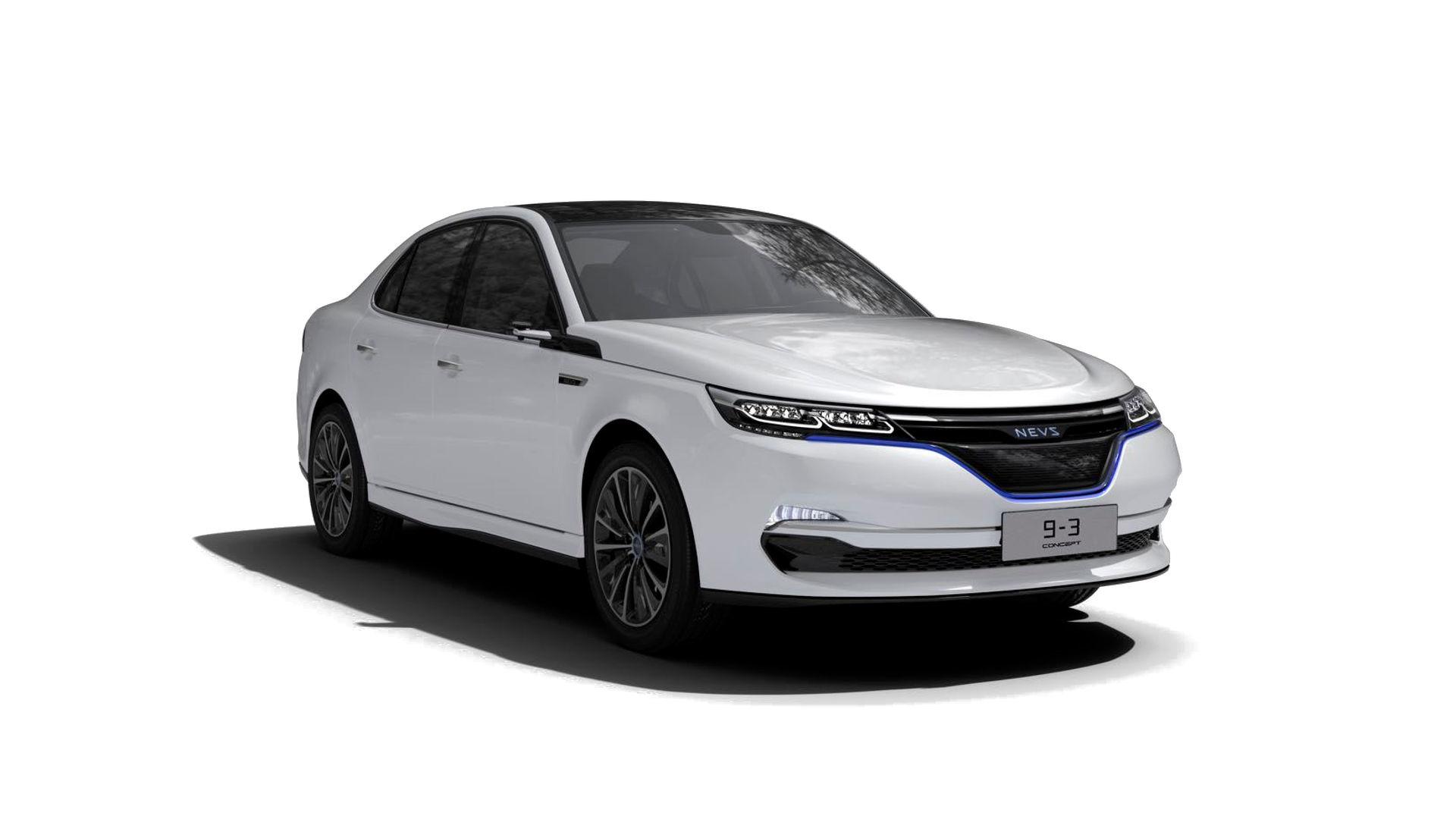

National Electric Vehicle Sweden (NEVS) bought the remains of Saab in 2012 with the intention of selling electric cars, primarily for the Chinese market. After several false starts, it looks like NEVS may finally be ready to start large-scale production.
NEVS will supply electric versions of the Saab 9-3 (prototypes of which were first shown way back in 2014) for a car-sharing and ride-sharing program in the Chinese city of Tianjin beginning next year, the company has announced. That also happens to be the location of the factory NEVS was granted a permit for earlier this year. NEVS owns the ex-Saab plant in Trollhättan, Sweden, but most, if not all, of its cars will likely be produced in China.
Along with the announcement of the Tianjin project, NEVS released renderings of the cars themselves, which feature updated styling and NEVS badging. (The rights to the Saab logo weren’t included in the 2012 sale, and NEVS subsequently lost the rights to the Saab name as well.)
Still, NEVS claims the 9-3 is “based on more than 70 years of Saab Automobile engineering experience” in its press release, and touts the “Swedish heritage” of the design. That’s a polite way of saying this 9-3 is the same General Motors-derived model Saab stopped building when it went bankrupt in 2011, which dates back to 2003.
Changes include the electric powertrain, which NEVS says will provide up to 300 kilometers (186 miles) of range. The car also features an onboard Wi-Fi hotspot, over-the-air software updates, and a fleet-management protocol for car-sharing or ride-sharing operators. It also has a “world-class” cabin air filter, which will probably come in handy given China’s notorious air pollution.
NEVS will build the electric 9-3 as a sedan and a “9-3X SUV.” NEVS describes the latter as a brand new model, although it looks like a warmed-over version of the last 9-3X, a wagon with SUV-like styling features that was essentially Saab’s answer to the Volvo Cross Country models. NEVS has no plans to bring back the 9-3 convertible, apparently.
In addition to the Tianjin sharing scheme, NEVS claims to have more than 150,000 orders from multiple Chinese companies. In December 2015, Panda New Energy, a Chinese car-leasing firm, said it alone would take 150,000 cars. NEVS also has an agreement with the government of Turkey to license production of the 9-3 in that country.
The Saab 9-3 didn’t exactly light the world on fire when it was new; by now, the design is quite old, and in the hands of a company with no real experience building cars. But even with that flimsy premise, NEVS could still be a success in China. The government’s aggressive promotion of electric cars means that virtually any company peddling them there stands a chance.